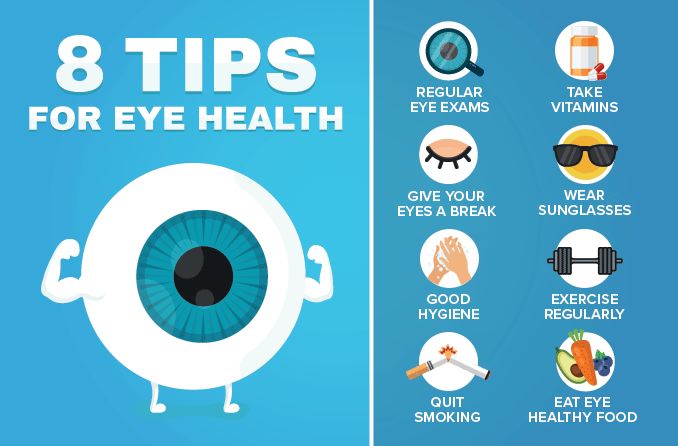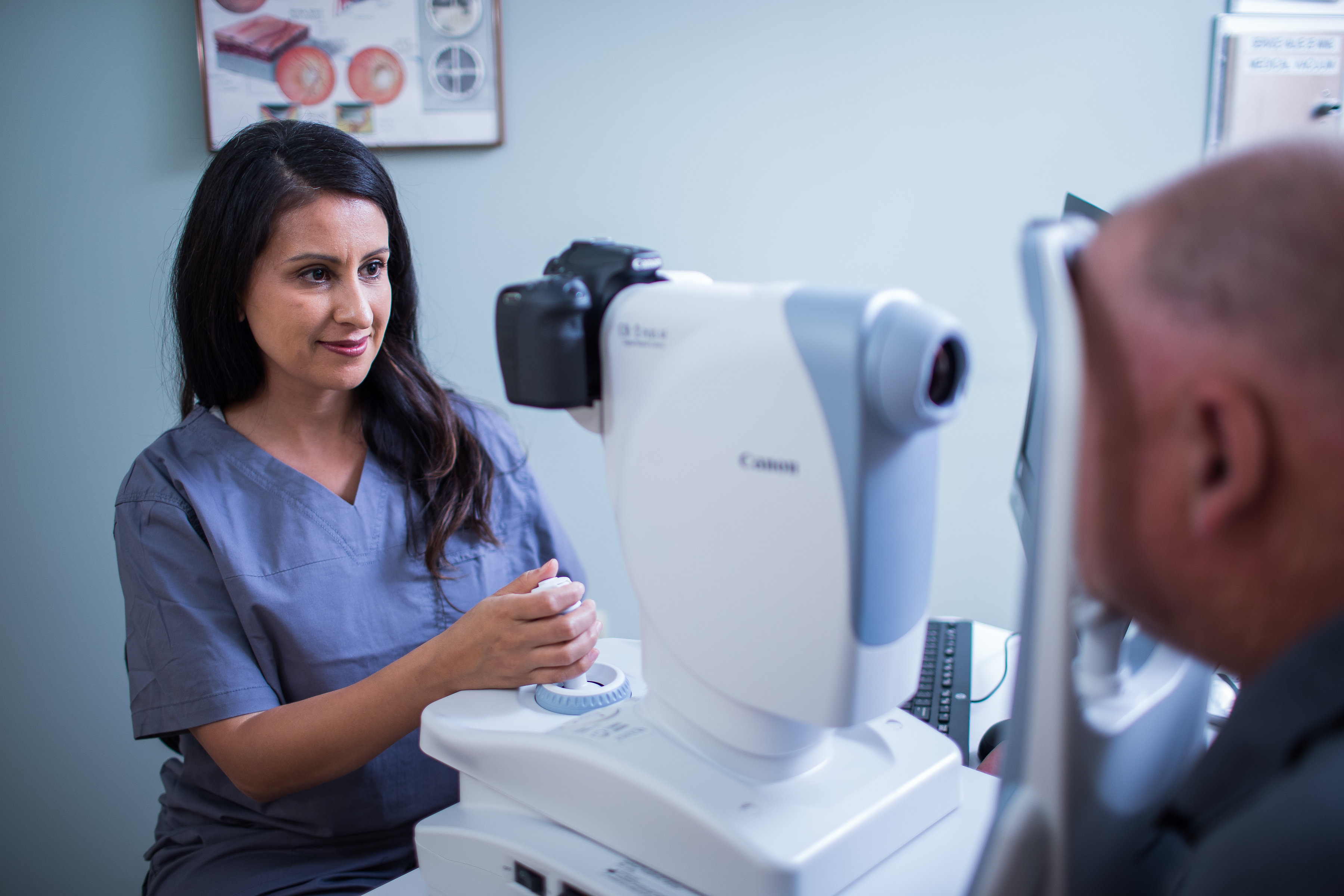Andalusia Pediatrics: Exceptional Look after Children's Health Needs
Andalusia Pediatrics: Exceptional Look after Children's Health Needs
Blog Article
Is Refractive Surgery Right for You? Aspects to Consider for Better Eyecare
In the world of eye care, the choice to undertake refractive surgery is a crucial one that requires thoughtful factor to consider. As individuals seek clearness and flexibility from the constraints of rehabilitative lenses, various aspects enter play when figuring out the suitability of such a procedure. From the details of one's eye health and wellness to the ins and outs of day-to-day routines and personal expectations, each facet holds relevance in the broader landscape of refractive surgical treatment candidacy. By examining these crucial elements with care and precision, a clearer course in the direction of educated decision-making arises.
Eye Health Evaluation
When taking into consideration refractive surgery, a comprehensive eye wellness analysis is critical to analyze the viability of the treatment for each individual. andalusia pediatrics. This assessment involves a series of exams and tests conducted by an eye treatment expert to identify the total wellness of the eyes, the existence of any hidden conditions, and the security of the refractive error
Throughout the examination, different factors are taken into consideration, such as the client's medical background, current eye prescription, corneal thickness, pupil dimension, and tear film top quality. These assessments aid to determine any kind of contraindications to refractive surgical procedure, such as corneal problems, cataracts, or neglected eye infections. In addition, the assessment aids to handle person assumptions concerning the possible outcomes of the surgical procedure based on their special eye characteristics.
Eventually, the eye health and wellness assessment is essential in making sure the safety and security and effectiveness of refractive surgical treatment, as it gives valuable insights into the individual's eye health and wellness status and assists establish one of the most ideal therapy options for achieving optimal aesthetic outcomes. (cardiologist andalusia)
Way Of Life Evaluation
A complete way of living analysis is integral in identifying the suitability of refractive surgical treatment for an individual's visual adjustment needs. Lifestyle factors such as line of work, pastimes, and day-to-day tasks play a vital duty in the decision-making procedure concerning refractive surgery. For instance, individuals with careers that entail a high level of physical activity or exposure to environmental aspects may have various aesthetic demands compared to those with sedentary workdesk work. Understanding how a person's way of living may impact their vision post-surgery is crucial for taking care of expectations and guaranteeing optimal outcomes.
In addition, way of life practices such as sports engagement, outside tasks, or even skin care routines can affect the healing procedure and total success of refractive surgical treatment. People who engage in get in touch with sporting activities might require to take extra safety measures to shield their eyes throughout the recovery period. In addition, individuals with extensive sun exposure may need extra post-operative treatment to avoid complications. By carrying out a thorough way of living assessment, eye care professionals can tailor their referrals and therapy strategies to meet the distinct requirements of each individual, eventually bring about boosted visual outcomes and fulfillment.
Expectation Positioning

Setting realistic expectations entails detailed pre-operative conversations between the client and the ophthalmologist. The doctor must transparently interact the potential threats, advantages, and restrictions of the procedure (cardiologist andalusia). Individuals need to comprehend that while lots of individuals attain 20/20 vision or far better complying with refractive surgery, some might still need glasses for certain tasks like reading or driving at evening. Handling these assumptions assists avoid disappointment and frustration post-surgery, causing a more favorable overall experience for the individual.
Danger Evaluation

Aspects that might raise the danger of difficulties include age, particular medical problems like autoimmune conditions, unstable vision prescription, slim corneas, and unrealistic patient assumptions. In addition, selecting a seasoned and proficient surgeon, complying with pre and post-operative care guidelines faithfully, and disclosing any kind of pertinent medical history can assist reduce risks.
To minimize the chance of problems, eye doctors carry out comprehensive pre-operative examinations to determine any kind of contraindications to surgical treatment. They likewise review the potential risks and benefits with clients during the examination process. By engaging in open interaction and shared decision-making, both the person and the eye doctor can work with each other to determine if refractive surgery is the right choice based on individual risk profiles and preferred results.
Assessment Value
Considering the critical duty of informed decision-making in evaluating risks and possible issues in refractive surgical procedure, the examination process holds significant importance in guiding patients in the direction of optimum results. During the appointment, the ophthalmologist reviews the client's eye health, refractive errors, and total suitability for surgical treatment. This initial evaluation is essential in identifying the most appropriate procedure for each person, considering aspects such as corneal thickness, pupil dimension, and existing eye conditions.
Moreover, the appointment functions as an opportunity for people to discuss their site here expectations, concerns, and any kind of concerns they might have relating to the surgical treatment. Clear interaction between the patient and the doctor is vital to ensure practical expectations and a thorough understanding of the prospective risks and benefits included.
Additionally, the examination allows the specialist to explain the different medical options offered, their respective end results, and the post-operative care called for. This extensive conversation empowers individuals to make educated decisions regarding their eye treatment, causing better contentment and outcomes post-surgery.
Final Thought
Finally, individuals taking into consideration refractive surgery must undertake a detailed eye health and wellness analysis, assess their lifestyle practices, straighten their assumptions with possible end results, analyze the associated dangers, and prioritize examinations with eye treatment specialists. These factors play a vital duty in determining the suitability of refractive surgical treatment for each and every person, ensuring optimal outcomes and complete satisfaction with the procedure.
Individuals thinking about refractive surgical treatment frequently have high assumptions relating to the end results, anticipating best vision without the requirement for glasses or get in touch with lenses. While refractive surgical treatment can considerably enhance vision and decrease reliance on visual help, it is crucial for people to recognize that outcomes may differ based on individual variables such as the level of refractive error, corneal density, and overall eye wellness.
By involving in open communication and shared decision-making, both the ophthalmologist and the person can work together to determine if refractive surgical procedure is the ideal option based on specific danger profiles and wanted results.
Considering the critical duty of notified decision-making in assessing threats and prospective problems in refractive surgery, the appointment process holds significant value in directing people towards optimal end results. Throughout the consultation, the eye doctor evaluates the individual's eye health, refractive mistakes, and overall viability for surgery.
Report this page